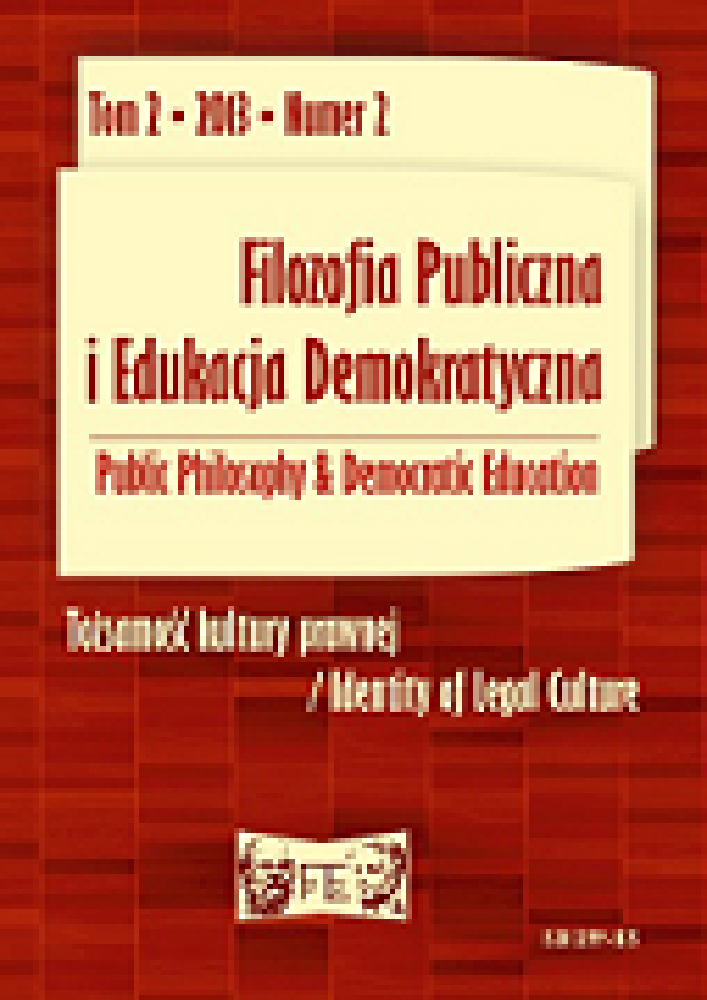Abstrakt
In this article I present some applications of analogy with reference to intercultural dialogue, firstly as a process in which the familiar structure of a direct experience in one situation improves awareness of an expected experience within another structure. Secondly, I follow the Enrique Dussel’s approach according to which where analogy is the key element of a true dialogue. In the paper conceptions of Ryszard Kapuściński, Martin Buber, Józef Tischner are presented in the context of intercultural dialogue and are applied to Yuko Abe’s analysis of students exchange experiences.
Bibliografia
Abe, Y., “Use of Analogy in the Development of Intercultural Competence”, Philosophies 2019, no. 4(2) (https://doi.org/10.3390/philosophies4020025).
Buber, M., I and Thou, transl. R.G. Smith, T. & T. Clark, Edinburgh 2008.
Dussel, E., “Analogy and Communication”, Philosophies 2019, no. 4 (https://doi.org/10.3390/philosophies4020031 ).
Dussel, E., Philosophy of Liberation, Orbis Books, New York 1985.
Gan-Krzywoszyńska, K., Leśniewski, P., “Analogy and philosophy of dialogue”. In: Między filozofią a chemią. Księga Jubileuszowa dla Profesora Pawła Zeidlera (pp. 269–277), Wydawnictwo Naukowe PWN, Poznań 2019.
Kapuściński, R., “Encountering the Other: The challenge for the 21st century”, New Perspectives Quarterly 2005, no. 22(4), pp. 6–13.
Orwell, G., Politics and the English Language, Penguin Books, London 2013.
Tischner, J., Etyka solidarności, Wydawnictwo Znak, Kraków 2005.
Licencja
Prawa autorskie (c) Autorzy zachowują prawa autorskie i prawa do publikacji swoich artykułów w tym czasopiśmie, przyznając czasopismu prawo do ich rozpowszechniania na warunkach CC BY-NC-ND 4.0

